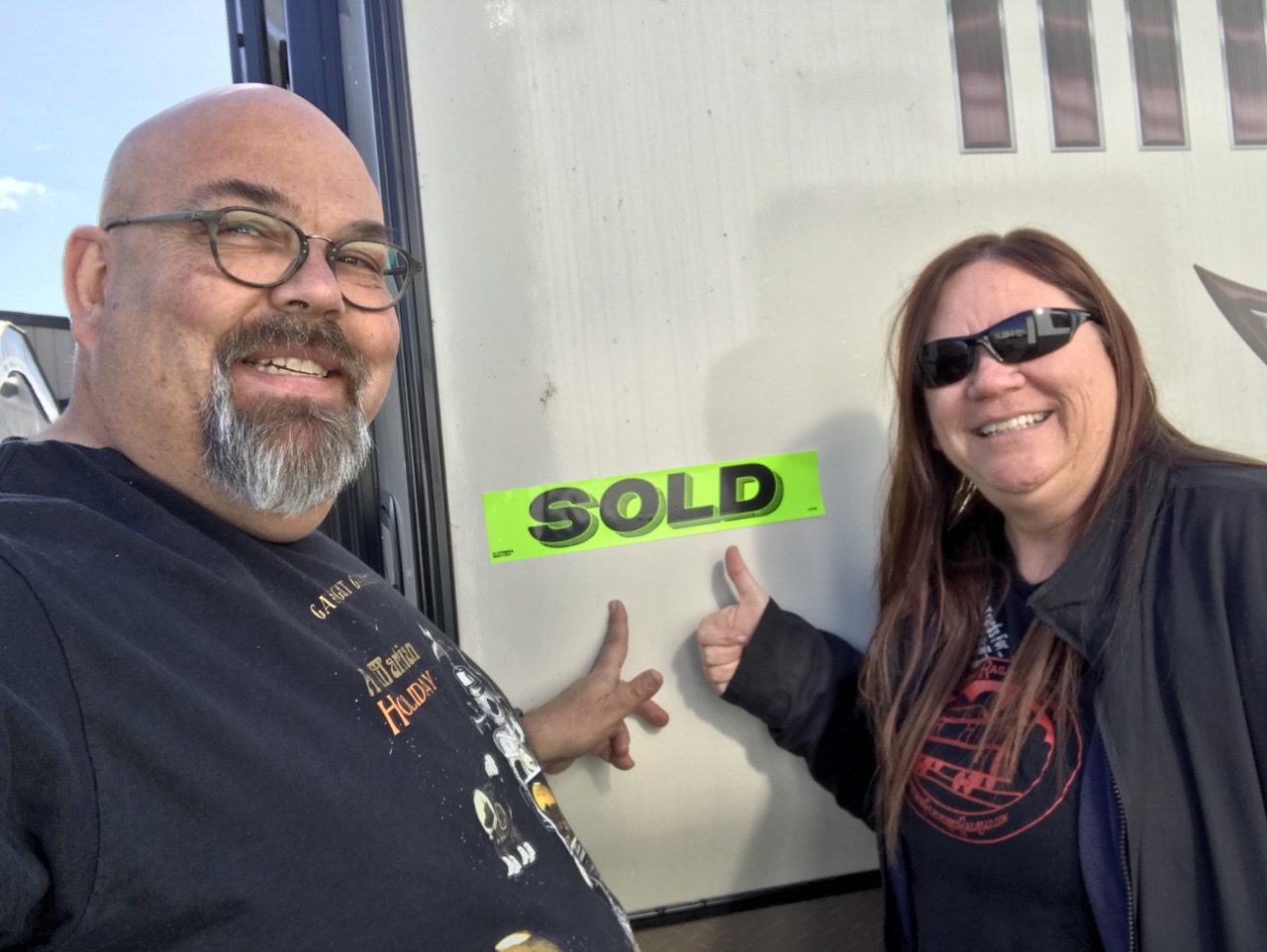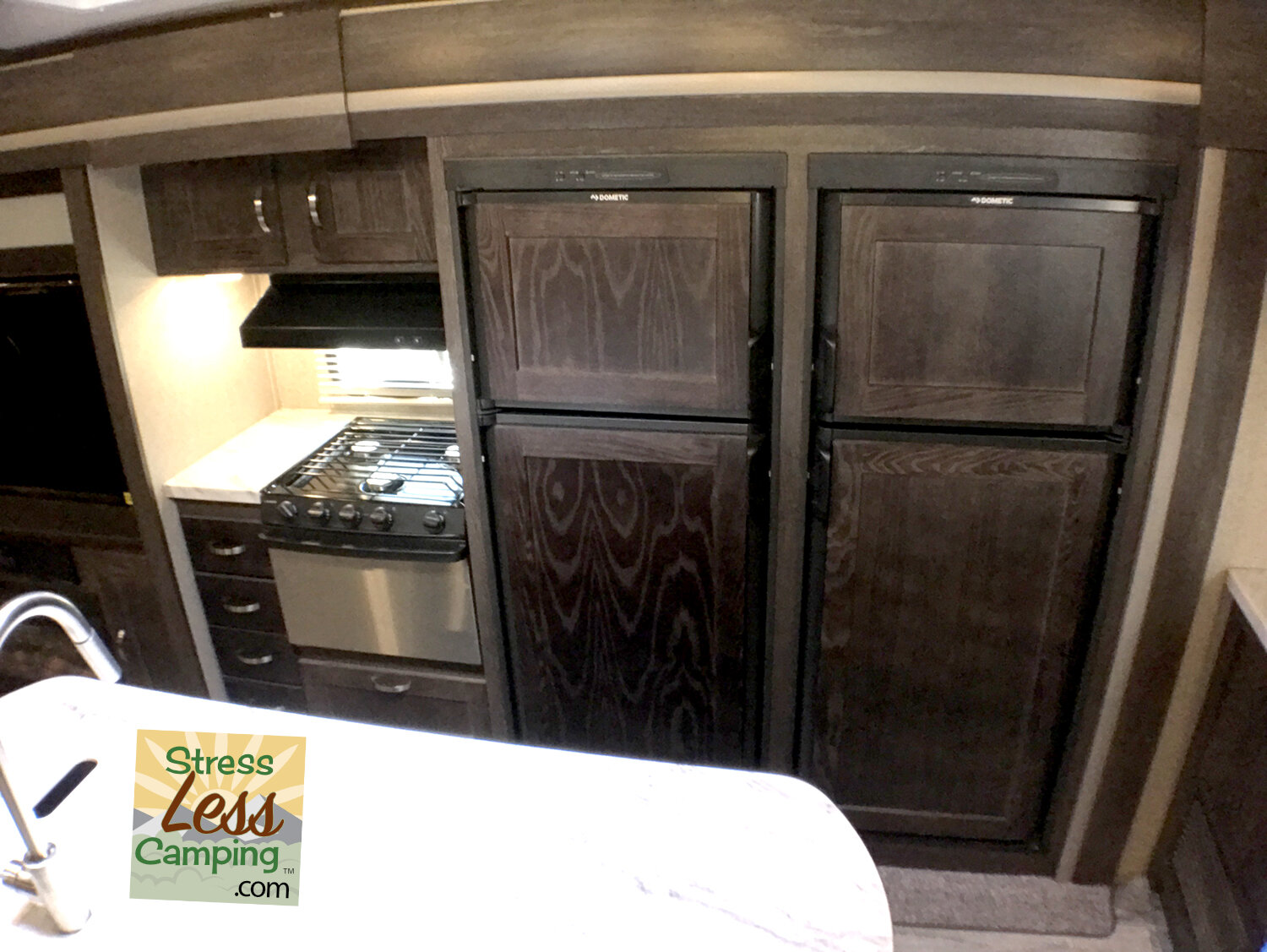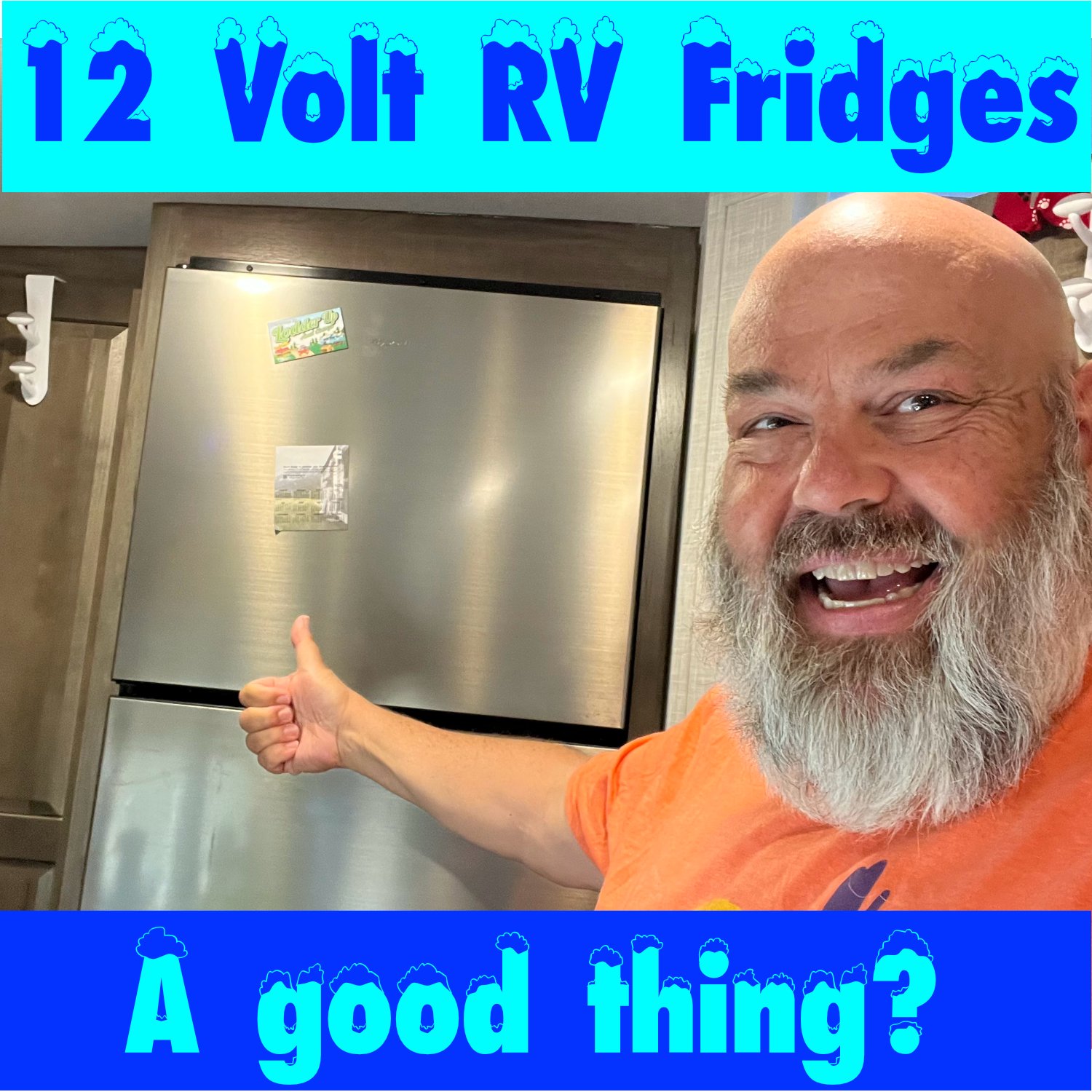Should I drive or tow with my RV refrigerator on?
Should you run your RV refrigerator while driving or towing? You see this question over and over again and it’s a hot debate. But is it safe? We asked a number of experts with surprisingly different results. And what are the dangers of driving or towing your RV with the refrigerator running?
What is an RV refrigerator
There are actually several kinds of refrigerators that can go in RVs but one of the more common types is the gas-electric absorption-style refrigerator. Simply put these work by heating an ammonia-based solution with either a propane fire or an electric heating element which then causes the gas to rise into an expansion chamber which cools it as it expands.
This is a great oversimplification.
The advantage of these is that they’re relatively simple with no real moving parts. The disadvantage is that they take a long time to properly chill and they also take longer to recover when you open the door.
Think of the RV refrigerator as a block of ice in an ice chest. Eventually the food gets cold but it takes a while.
One way to speed up the process is with something like an RV refrigerator fan.
Another disadvantage of these is that they should remain within 3° of level to properly work. This is so the heat source, either the propane fire or the electric heating element, can heat the gas and not just the metal tube it’s in.
As you’re driving down the road; however, the gas is sloshing around so heating it with the propane fire isn’t necessarily harmful to the system.
Food safe temperature
The objective of the refrigerator is to maintain food-safe temperature. For foods that should be refrigerated this is 40° F or below (4.4°C). Typically most refrigerators operate at between 37°-42° which is fine for avoiding food spoiling.
Your freezer should operate at 0° F.
What are the dangers
So what are the dangers of running with the refrigerator on? Essentially you have a source of ignition (the spark mechanism that lights the RV refrigerator) and a source of propane in a moving vehicle.
Under normal conditions this may not represent an issue. But you also wear your seat belts in case things don’t happen normally.
According to several firefighters we contacted for this article all of them agreed that running with the RV refrigerator turned on is a big mistake.
One specifically said, “when we roll to a fire in an RV the owner almost always says, ‘I’ve been running with the fridge on for years and this has never happened before.’” Her response is generally, “Until it does.”
We spoke to a fire chief, a fire captain and several firefighters and all of them agreed that the dangers of running with an RV refrigerator running aren’t worth the risk.
While the likelihood that your refrigerator will catch fire are low, there is that chance. Again, the likelihood that you’ll need your seat belts is also low but you still wear them.
Furthermore, by leaving the gas on you have an open source of propane if anything goes wrong anywhere in the propane lines. For example, this couple’s stove just fell out. And many RVs have outside propane quick disconnects that can be damaged in transit. In fact, ours was.
A post on social media shared this picture of the consequences of driving with your RV refrigerator running
It might be illegal
In many places it is simply illegal to travel over bridges and tunnels with the propane on, period. You’re also not usually allowed to have the propane on if you’re aboard a ferry.
You would also want to turn the refrigerator off before you even get to a filling station so there is no chance that the ignitor or open flame in the refrigerator will cause an explosion, which would be a bummer for everybody.
That means that you have to find a safe place to pull over, go turn the refrigerator and the propane off and then find yet another safe place to pull over and turn it back on when you’re done fueling. This is more than I’m willing to be bothered so just another reason not to run with the refrigerator and propane on.
What about cold food?
In an email from Dometic they said that their refrigerators can maintain a food-safe temperature for up to eight hours depending on the ambient temperature. In the least ideal conditions (high temperatures outside) it can still maintain food-safe temperature for up to four hours and, even on warmer days, can maintain temperatures for six hours or so.
You could also turn it on during rest stops or while preparing lunch and such along the journey to chill it further.
Other tips
If you freeze water bottles and have other frozen things in the refrigerator that will help it maintain food-safe temperatures as well. In fact liquids are good at keeping things at temperatures so having cold beverages in the refrigerator can also help to keep the entire thing cold.
It also helps to minimize the number of times you open the refrigerator door in transit. For example, we’ll grab all our lunch supplies in one quick move instead of repeatedly opening and closing the refrigerator.
What about 12volt refrigerators?
If you have a newer RV with a 12 volt compressor-based refrigerator you’re in luck. None of this applies to you. In fact, there are a lot of advantages to these types of refrigerators including the fact that they chill faster, recover more quickly and don’t need venting to the outside. They can run when you’re driving just fine.
Also, if you have a three-way refrigerator in your RV that runs on propane, 120vac and 12 volt DC you can run that on the 12 volt system just fine. While these refrigerators don’t cool down quickly on 12 volts they do work just fine keeping things cold on 12 volts so there’s no reason to worry about having these operate while on the road, so long as you’re using the 12 volt system.
What we do
With a little bit of planning ahead and keeping our trips to about six hours or so per day we have zero issues with food getting out of the safe zone. We’ve towed our trailer for half a day and the ice cream in the freezer is still frozen and the beer in the fridge is still cold.
Modern RV refrigerators are very well insulated like a high-quality ice chest and are designed to keep your food at safe temperatures for hours. The risk of a propane fire caused by a break in a line or a failure in the refrigerator just isn’t worth it, to us, to keep things cold.
Without a doubt, having to stand by as the fire department tries in vain to put the fire out in your RV is definitely not StressLess Camping.









